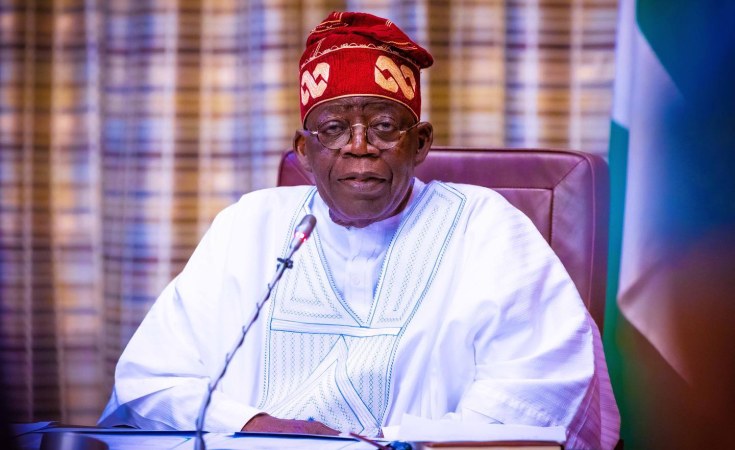Whatever it is, within a short time, President Bola Tinubu has enthroned himself in sub-regional politics.
Not just that, he seems to have taken his place beyond continental geopolitics. Give it to him!
His adventure in the Niger coup crisis may not be popular at home, but it offers him visibility on the global stage.
In immediate political terms, the limelight comes with value rather than liability as some critics back home suggest.
However, what seems like the impasse's significance only relates to the President's stature and ego, and not critical domestic issues.
And for someone whose emergence as the leader of Africa's biggest democracy is dogged by disturbing questions, Niger is his talisman.
You may not fully appreciate the public relations import of the conundrum to the Tinubu presidency until you recall that the crisis emerged at a time when the European Union in its report, discredited the 2023 elections.
At least, the visibility and the soundbites of his stance on Niger, apart from attracting a deluge of criticism, fetched him allies, especially from the West.
In him, the West has found a rallying point in advancing their stance on Niger and democracy.
Foreign governments, notably France, the US, and Britain are literally lining up at Tinubu's door with praise.
In less than two months, the President has witnessed a rise in his popularity among those who share his tough stance against the Niger coup plotters.
But the story differs back home as the majority contends that the President got off to a bad start with the choice of response to the matter.
When the desperate socio-economic concerns in Nigeria are considered, analysts are left with no option but to question the overdrive on Niger.
Only a few see altruism in the Tinubu-led Economic Community of West African States, ECOWAS', proposed war mission to the former French colony.
Whatever good the African leaders meant is already consumed by the legacy of mistrust they have built over the years.
For instance, Nigerians feel that by "prioritising" the likely kinetic action against the coupists in Niamey, President Tinubu deliberately chose distraction at a time of severe domestic challenges.
Although, by spearheading the regional opposition to military intervention, he has succeeded in following through on his inaugural pledge upon emergence as ECOWAS Chairman.
On July 9, 2023, Tinubu emerged as the 16th chairman of ECOWAS, threatening that coups were unacceptable to the regional body.
The statement rests on the fact that no fewer than six West African and African countries (Mali, Guinea, Chad, Sudan and Burkina Faso) have witnessed coup d'etats recently. Now, add Gabon to the list.
"We will not accept coup after coup in West Africa again. Democracy is very difficult to manage, but it is the best form of government, " Tinubu said while rallying his colleagues against coups.
"There is no one here among us who did not campaign to be a leader. We didn't give our soldiers resources, we didn't invest in them, in their boots, in their training to violate the freedom of the people. To turn their guns against civil authorities is a violation of the principles upon which they were hired, which is to defend the sovereignty of their nations. We must not sit in ECOWAS as toothless bulldogs," he added.
Less than three weeks after the remarks, the Niger military ousted their democratically elected President, putting to test Tinubu's resolve that "ECOWAS will no longer sit as toothless bulldogs."
Apart from being a major foreign policy direction, strongly opposing military intervention conforms to the ECOWAS Treaty of July 8, 1993, which seeks to promote and protect democracy among member states.
But the threat of sending troops to Niger isn't widely regarded as strategic given that war won't make Nigeria or any ECOWAS country safer.
Another argument that leaves the military option unpopular is that if it worked in the past, especially in some African countries, failure may be the outcome this time.
Reason: Unlike in the past, what obtains now are altered dynamics, rewired geopolitical alliances and actors with different ideological leanings.
Such a situation dims the prospects of enduring political stability should ECOWAS forcefully reinstate ousted Nigerien leader, Mohammed Bouzum.
It implies that a military solution won't only be disruptive to peace and cohesion in the region, but also lead to uncertain outcomes.
If the positions of countries in solidarity with Niger are anything, the 48-year-old regional block risks splintering given the handling of the Niger crisis.
Such a possibility raises puzzles about the leadership of ECOWAS, a body that has historically endured more exigent issues.
Therefore, how President Tinubu manages the growing tension would either shore up or hurt his popularity.
QUOTE
Such a situation dims the prospects of enduring political stability should ECOWAS forcefully reinstate ousted Nigerien leader, Mohammed Bouzum.


